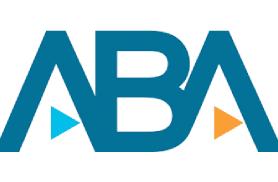Dive Insight:
The ABA has worked to broadly review its accreditation standards, said Martinez, who is also professor of law emeritus at the University of California Hastings College of the Law. The recent resolution was an attempt to clean up language and definitions in standards related to distance education, not to institute wide-ranging changes, he said.
“It became clear during the pandemic that what we consider distance education varied somewhat among the schools, so one of our tasks was to clarify exactly what we mean,” he said. “We want some precision as to what the school and we consider distance education.”
The resolution changed the definition of a distance education course to one in which students are separated from all faculty members for more than a third of instruction, removing previous language that specified students need to be separated from faculty or each other. That means the enrollment of a single remote student will not convert an entire class to a distance education course in the accreditor’s eyes.
The resolution further clarifies that a law school can grant a student up to one-third of the total credit hours required for a J.D. from distance education classes. With the new resolution, if a student needs to participate in class remotely due to a necessary accommodation under law or an exceptional circumstance, that remote class will not count towards the student’s limit on distance education classes.
While the adopted language is unlikely to result in any practical changes at law schools, the ABA remains interested in examining distance education. The association has issued roughly a dozen waivers to law schools that wish to offer greater levels of distance education without losing ABA accreditation, Martinez said.
Syracuse University, for example, received a waiver in 2018 and graduated its first class of hybrid students this year.
“There is a population out there of folks who already have an established full-time job, who may be in more remote areas, who have personal or family commitments that preclude them attending a full-time residential program,” Shannon Gardner, the law school’s associate dean for distance education, told Higher Ed Dive in July. “Many folks realize this is the future of legal education — not that it will replace traditional programs. It is one route to pursue a legal education that is here to stay.”
Cohorts from hybrid and distance programs will continue graduating over the next few years, and their outcomes will guide the ABA’s next moves, Martinez said.
“The ABA has always been careful when it comes to allowing credit for distance education, but we realize it is worth making a deeper dive into whether distance education on a grander scale makes sense,” he said. “If the first cohorts who are the products of these programs go through the bar exam and the bar passage rate plummets by 50%, we’ll know we’ve gone too far.”
Source:
https://www.highereddive.com/news/aba-cleans-up-accreditation-rules-surrounding-distance-education-for-law-sc/630870/




